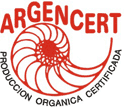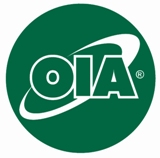International Conference on Organic Agriculture and Food Security
Rome, 03 - 05 May 2007
International Conference on Organic Agriculture and Food Security
http://www.fao.org/organicag/ofs/index_en.htm
REGISTRATION OPEN UNTIL 15 APRIL 2007
What does "organic agriculture" mean?
Organic agriculture as a holistic production management system that avoids use of synthetic fertilizers, pesticides and genetically modified organisms, minimizes pollution of air, soil and water, and optimizes the health and productivity of interdependent communities of plants, animals and people. The non-use of external agriculture inputs which results in natural resources degradation (e.g. soil nutrient mining) does not qualify as “organic”. On the other hand, farming systems which do not use external inputs but actively follow organic agriculture principles of health and care are considered organic, even if the agro-ecosystem is not certified organic. On the market place, the organic claim requires certification and related products are distinguished by an organic label. Organic labels can originate from both third party certification and participatory guarantee systems. The term “agriculture” is used in the wider sense to include forestry and fisheries; therefore, organic aquaculture and organic harvesting of non-timber forest products are covered by the Conference. Finally, agricultural harvest includes food, fibers, medicinal and cosmetic raw materials.
What does "food security" mean?
When all people, at all times, have physical, social and economic access to sufficient, safe and nutritious food which meets their dietary needs and food preferences for an active and healthy life (World Food Summit, 1996). The multi-dimensional nature of food security includes food availability, access, stability and utilization defined as:
Food Availability: The availability of sufficient quantities of food of appropriate quality, supplied through domestic production or inputs.
Food Access: Access by individuals to adequate resources (entitlements) for acquiring appropriate foods for a nutritious diet. Entitlements are defined as the set of all commodity bundles over which a person can establish command given the legal, political, economics and social arrangements of the community in which they live (including traditional rights such as access to common resources).
Food Stability: To be food secure, a population, household or individual must have access to adequate food at all times. They should not risk loosing access to food as a consequence of sudden shocks (e.g. an economic or climatic crisis) or cyclical events (e.g. seasonal food insecurity). The concept of stability can therefore refer to both the availability and access dimensions of food security.
Food Utilization: Utilization of food through adequate diet, clean water, sanitation and health care to reach a state of nutritional well-being where all physiological needs are met. This brings out the importance of non-food inputs to food security.
















